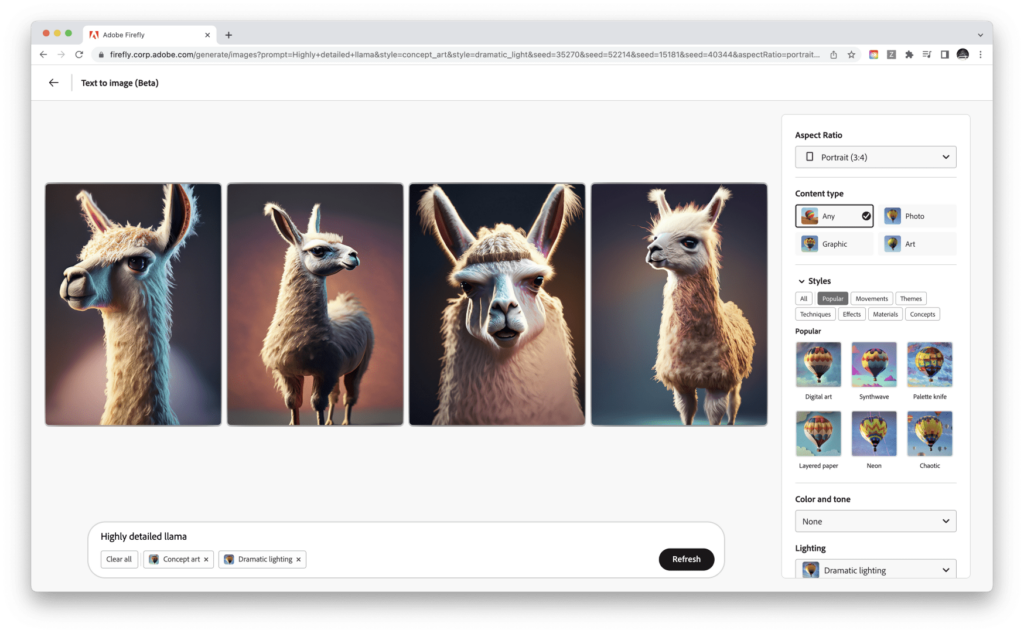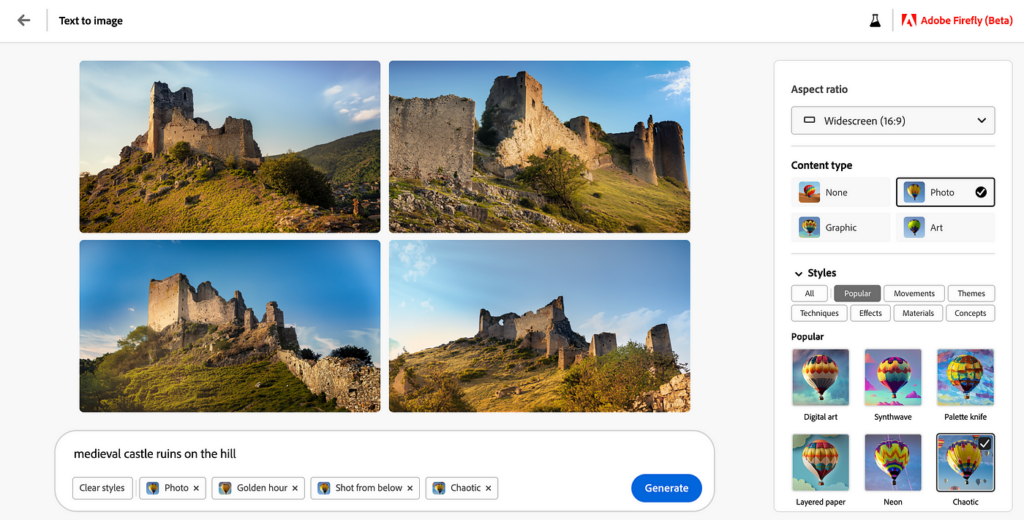The software company Adobe is known for creating some of the most widely used applications in the creative industry. In March of 2023, Adobe announced the launch of Adobe Firefly, a new software product that promises to transform the way designers and developers collaborate. Adobe Firefly is a new family of generative AI models focusing on image and text effect generation. AI has been the topic of much controversy over the past year or two. Much of the controversy has been regarding the ethicality of it all. Some AI has brought up concerns about plagiarism and privacy regarding generated images allegedly stealing ideas from artists. Another AI seems to threaten the workforce and availability of jobs. While the introduction of new technology is always exciting, it’s important to examine the ethical implications of such innovations.
One of the primary ethical concerns surrounding Adobe Firefly is its potential impact on the job market. Currently, design and other creative careers require the ideas of people. With Firefly’s AI-powered design capabilities, it’s possible that some of the tasks previously performed by human designers may become automated. There are concerns about this negatively impacting the job market and leading to reduced job opportunities in creative industries. While automation can certainly improve efficiency and reduce costs, it’s important for companies to be mindful of the impact such changes could have on their employees and the wider job market.

Another ethical concern related to Adobe Firefly is its potential impact on the privacy of users. As with any new technology that relies on AI and machine learning, there is always the risk that user data could be collected and used in ways that are not transparent or ethical. Adobe must take steps to ensure that user data is protected and that its software is developed in accordance with ethical principles.
Lastly, there’s a need to consider the broader implications of the increased use of AI in the design industry. While AI can certainly be used to improve the efficiency and quality of design work, it’s important to remember that these tools are only as ethical as the people who create them. It’s crucial for designers and developers to consider the ethical implications of their work, and for companies like Adobe to prioritize ethical considerations in the development of their products.

On a more positive note, there are also potential benefits to the use of Adobe Firefly from an ethical standpoint. For example, by streamlining the design process and making it more collaborative, Firefly could help to reduce the potential for personal biases to creep into design decisions. This could lead to more inclusive and equitable design outcomes, which is an important ethical consideration in any industry. Also, Adobe is cognizant of the public’s ethical concerns. To ensure there is no copyright infringement or plagiarism, Adobe’s AI is trained to only analyze Adobe Stock images, openly licensed content, and public domain content. They also intend for the program mainly to be used to support creative industries and not replace creatives. The positive intentions of Adobe in the development of Firefly will hopefully ensure its ethical use.
In conclusion, the development of Adobe Firefly raises a number of ethical concerns that must be carefully considered. While there are certainly potential benefits to the use of AI-powered design tools, it’s important for companies like Adobe to prioritize ethical considerations in their product development process. By doing so, they can help to ensure that new technology is used in ways that are both innovative and responsible.
- The Future of Graphic Design in a Digital World - June 30, 2025
- How to Communicate Your Vision to a Graphic Designer Effectively - May 23, 2025
- Why Branding Matters: A Designer’s Perspective - April 17, 2025


0 Comments